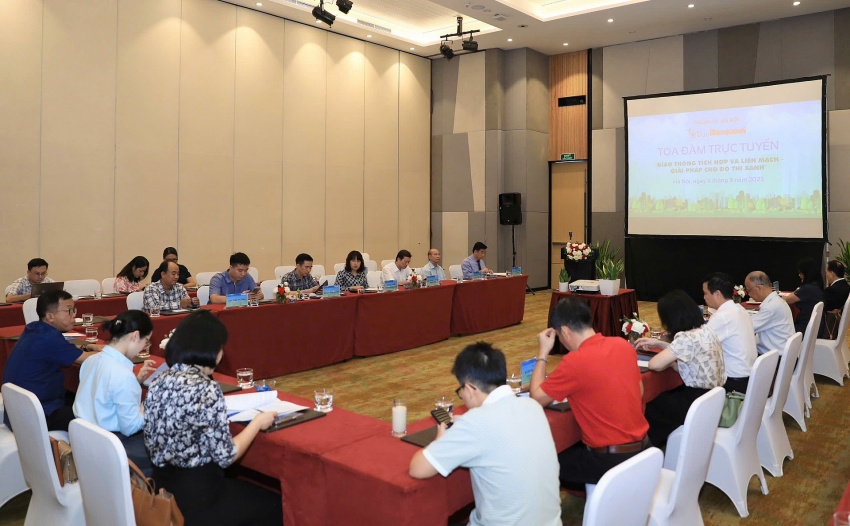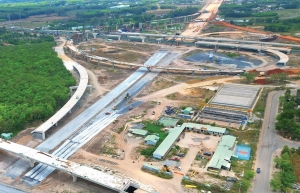INTERNATIONAL INVESTMENT
AND PORTAL
Policymakers, businesses, and experts have gathered in Hanoi to discuss integrated and seamless transportation solutions to develop green cities.
The event was held on August 6 after the government issued Directive No. 20/CT-TTg dated July 12 on a number of urgent tasks to prevent and resolve environmental pollution.
The directive requires Hanoi to implement solutions and measures for organisations and individuals to convert their vehicles and routes so that by July 1, 2026, there are no motorbikes or scooters using fossil fuels in Ring Road 1; from January 1, 2028, there will be no motorbikes or scooters, and limited personal cars using fossil fuels in Ring Road 1 and Ring Road 2; and from 2030, the implementation will be expanded to Ring Road 3.
 The roundtable on August 6. Photo: Bich Thuy
The roundtable on August 6. Photo: Bich Thuy
Addressing the event, Nguyen Tuyen, head of the Transport Management Office under Hanoi Construction Department, said that public transport only meets 19.5 per cent of the travel needs of people in Hanoi. Meanwhile, the city currently has about eight million motorbikes and nearly 1.5 million cars.
“The growth rate of personal vehicles in the city is 4.5 per cent per year. The planning for static traffic must reach 3-4 per cent, but Hanoi has not yet reached 1 per cent. Along with that, the ratio of land for traffic to urban construction land in the city is only 12.13 per cent, while the planning target for the central urban area is 20-26 per cent,” he explained.
Expert Nguyen Minh Phong pointed out six bottlenecks to Hanoi's public transport system. These are a lack of convenience; lack of connection among different means of public transport; lack of diversity among means of transport; and lack of seamless connections between public transport and private transport.
“Especially, we lack financial mechanisms to encourage the development of public transport and private transport seamlessly,” he added.
Proposing conditions for convenient traffic connections, Dang Thuy Trang, director of external relations at Grab Vietnam, said that the process of greening the transport system and greening the environment is a long-term task, requiring the cooperation of many parties, including state agencies, and technology enterprises to help build an integrated and seamless transport ecosystem.
“It is necessary to build a system of pick-up and drop-off points at metro stations, airports, and bus stations to ensure convenience and safety for passengers and drivers. At the same time, we need to provide other information and support during their trips,” she added.
In response, Tuyen said that the authorities will enhance connections to minimise disruptions. The connections must ensure that people can access buses.
“We have reviewed and so far, there are only more than 100 points for bicycle services. Later, when we limit motorbikes using fossil fuels, and we will review which areas can handle bicycles to increase connectivity so that people can use public transport conveniently,” he noted.
 Private investors keen to hop on board transport ventures
Private investors keen to hop on board transport ventures
The race to participate in North-South Expressway projects is heating up as more private businesses rush to secure a slot, anticipating open opportunities and supporting policies.
 Autonomous Agents to Transform Transport Management Systems
Autonomous Agents to Transform Transport Management Systems
AI-driven logistics agents promise to boost efficiency, reduce human error, and redefine global transport coordination.
 Turning point here with bike ban and green urban mobility
Turning point here with bike ban and green urban mobility
Vietnam is entering a crucial phase in its urban transport transformation, with Hanoi becoming the first city in the country to announce a roadmap to ban petrol-powered motorbikes in central areas from July 2026.
By Bich Thuy



















